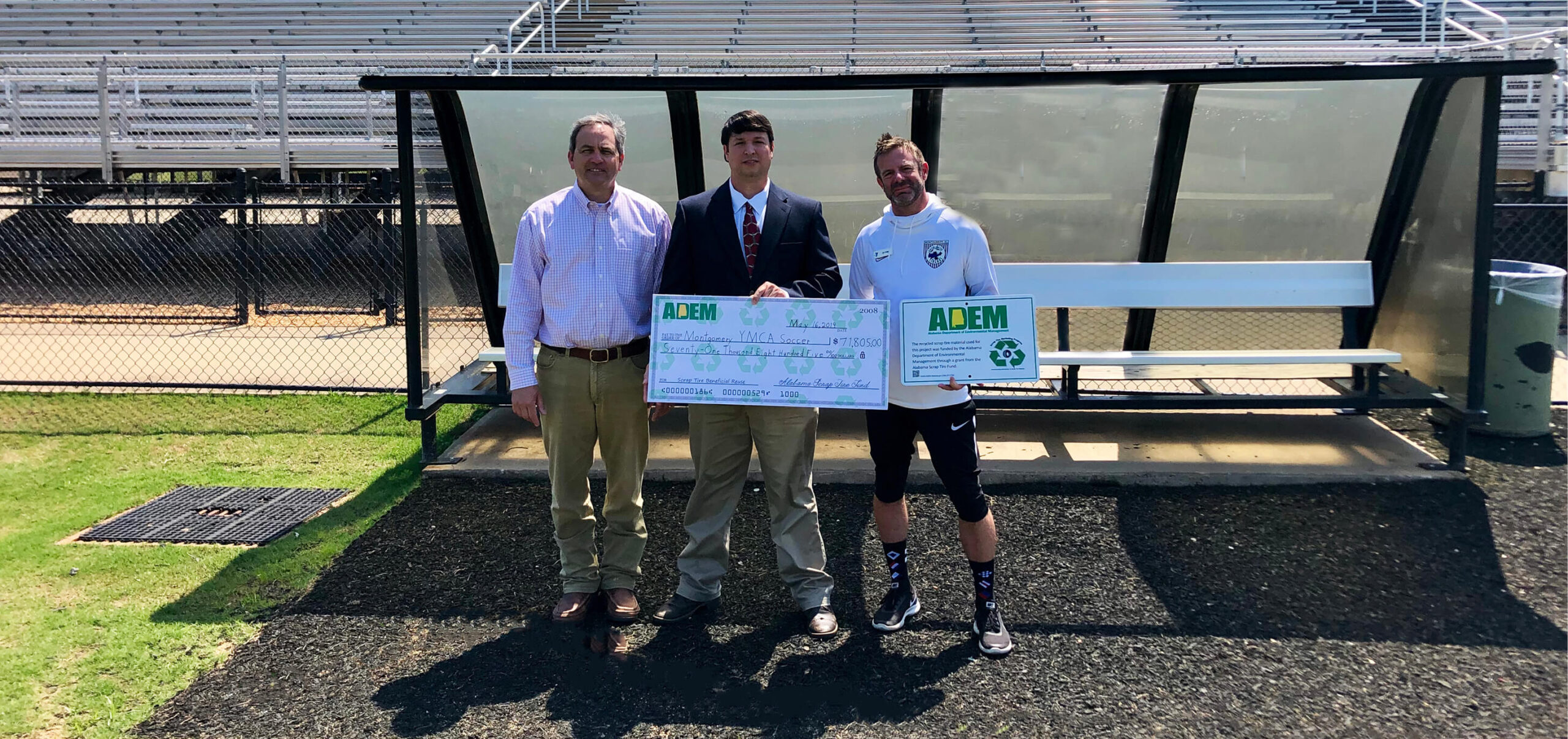
The Montgomery Area YMCA Emory Folmar Soccer Complex in Montgomery, Alabama, is one of the state’s premier soccer complexes, comprising ten regulation soccer fields, including a two-field soccer stadium with seating capacity for 4,000. The state-of-the-art facility has served as the host venue for the National Association of Intercollegiate Athletics (NAIA) Men’s Soccer National Championship, Southern States Athletic Conference Championship, Alabama State Soccer Association Final Four, and the Governor’s Cup, among others. As a result of the constant utilization for games, tournaments, practices and other events throughout the year, the complex undergoes a lot of wear and tear.
One of the major problem areas was the space in front of the player benches in the stadium. This area receives a lot of foot traffic, making it almost impossible for grass to grow and often turning it into a mud pit. The YMCA needed a solution that would be safe for players, porous and durable, in addition to cost effective, especially as a nonprofit organization with limited resources.
In 2004, the Alabama Department of Environmental Management (ADEM) launched its Scrap Tire Program, following the passage of the Alabama Scrap Tire Environmental Quality Act in 2003. This Act was designed to comprehensively regulate scrap tire accumulations and provide for cleanup and remediation of illegal scrap tire piles. The Act also placed a $1 per tire fee on all replacement tires sold to establish a scrap tire fund, which funds efforts for remediation of scrap tire sites and disposal and reuse of scrap tires.
Scrap tire material can be repurposed to serve as an alternative to traditional materials used for energy, manufacturing and engineering projects. In the YMCA’s case, the recycled material would be used to provide rubber padding around and between each of the player benches, alleviating the issues they were experiencing with these areas and creating a more aesthetically pleasing and sustainable facility.
Engineers with Goodwyn, Mills and Cawood (GMC) worked with the YMCA to submit a grant application to ADEM to fund the project through the Scrap Tire Marketing Fund. Each of the four player benches is situated on a rectangular concrete pad approximately 5 feet by 17 feet. The YMCA requested funding for a recycled rubber pad around each of the concrete pads, extending six feet in front of each bench and six feet on either side of the bench, in addition to a 5-foot sidewalk between the benches on each field.
ADEM awarded the grant to the YMCA in 2017, making it possible for the project to move forward. “Alabama generates more than five million scrap tires each year, many of them destined for disposal. ADEM is working to reduce the number of tires that are sent to landfills. This effort extends the life of existing landfills, conserves natural resources and provides economic benefits by enhancing the use of recycled materials,” said Adam Rhodes of the ADEM Land Division’s Materials Management Section. “The material used at the Emory Folmar YMCA Soccer Complex is an example of the many uses for recycled tire material.”
In addition to assisting with the grant application, GMC donated its services to design the project and provide construction oversight. The sidelines were regraded, and concrete pads and a swale were created so that water would run off the field toward the benches. The porosity of the recycled material allows water to move through the surface to the concrete below, where it is then carried to the onsite stormwater drainage system.
The City of Montgomery, a continual supporter of the YMCA and its efforts to provide opportunities for youth in the community, also played a key role in bringing the project to fruition. City crews assisted with construction and maintain the fields to ensure they remain “competition ready” – a much easier task upon completion of the scrap tire project.
The innovative utilization of a recycled product gives participants in the soccer program, as well as spectators, the opportunity to learn about repurposed materials. The YMCA has mounted educational signage near the pads recognizing ADEM for contributing the recycled tire pads to enhance the facility and raising awareness of the recycled tire program among the estimated 100,000+ annual visitors to the Emory Folmar YMCA Soccer Complex. This project serves as a prime example of a sustainable and cost-effective solution that could be replicated at athletic complexes throughout the region.